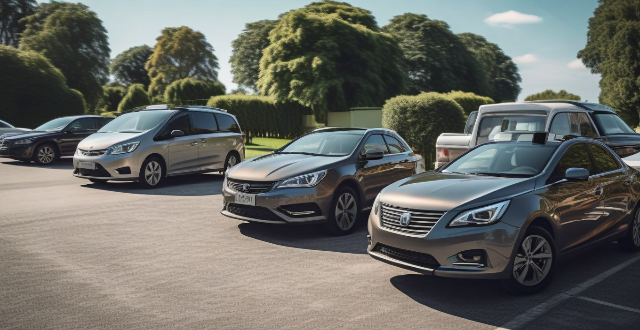Consumers consider various factors when deciding to purchase a car, including personal preferences such as aesthetics and brand loyalty, practical considerations like cost, efficiency, safety, and reliability, environmental impact with a focus on emissions and alternative energy vehicles, and market influences including promotions and peer recommendations. The decision-making process is highly individualized as each consumer weighs these factors differently.

Factors Influencing a Consumer's Decision to Purchase a Car
Purchasing a car is often a significant financial decision for consumers. Several factors can influence this choice, ranging from personal preferences to practical considerations. Here are some key elements that play a role in the decision-making process:
Personal Preferences and Lifestyle
Aesthetics
- Color: The color of the car can affect the buyer’s emotional response.
- Design: Current trends and timeless designs might be considered based on individual taste.
Brand Loyalty
- Some consumers may prefer certain brands due to past positive experiences or brand reputation.
Lifestyle Needs
- Family Size: Larger families may require more spacious vehicles.
- Hobbies: Enthusiasts might opt for cars suited to their recreational activities, like off-roading or racing.
Practical Considerations
Cost
- Initial Price: The sticker price is often the first factor considered.
- Running Costs: Fuel efficiency and maintenance expenses over time.
- Resale Value: Some cars hold their value better than others.
Efficiency and Performance
- Fuel Economy: High mpg ratings appeal to budget-conscious buyers.
- Engine Power: Desired level of acceleration and top speed.
- Handling: How the car performs on the road and feels to drive.
Safety
- Crash Test Ratings: Consumers look for high safety ratings from organizations like the NHTSA or IIHS.
- Advanced Safety Features: Technological aids such as automatic emergency braking or lane keep assist.
Reliability
- History of the Model: Reviews and feedback from current and previous owners.
- Warranty Terms: Length and coverage of the manufacturer's warranty.
Environmental Impact
Emissions
- Tailpipe Emissions: Some consumers seek out cars with lower emissions.
- Green Certifications: Programs like the EPA’s Smartway designation for fuel-efficient vehicles.
Alternative Energy Vehicles (AEVs)
- Hybrid Cars: Offer improved gas mileage with the help of electric motors.
- Electric Cars: Completely emission-free operation with the need for recharging infrastructure.
Market Influences
Promotions and Discounts
- Sales: Time-limited offers might prompt a quicker purchase decision.
- Financing Options: Low interest rates or attractive financing deals can be persuasive.
Peer Influence
- Word of Mouth: Recommendations from friends or family members.
- Social Media: Popularity on platforms like Instagram or TikTok can create hype around certain models.
In summary, the decision to purchase a car is multifaceted and influenced by a combination of personal preferences, practical needs, environmental concerns, market conditions, and social dynamics. Each consumer weighs these factors differently, resulting in a highly individualized buying process.